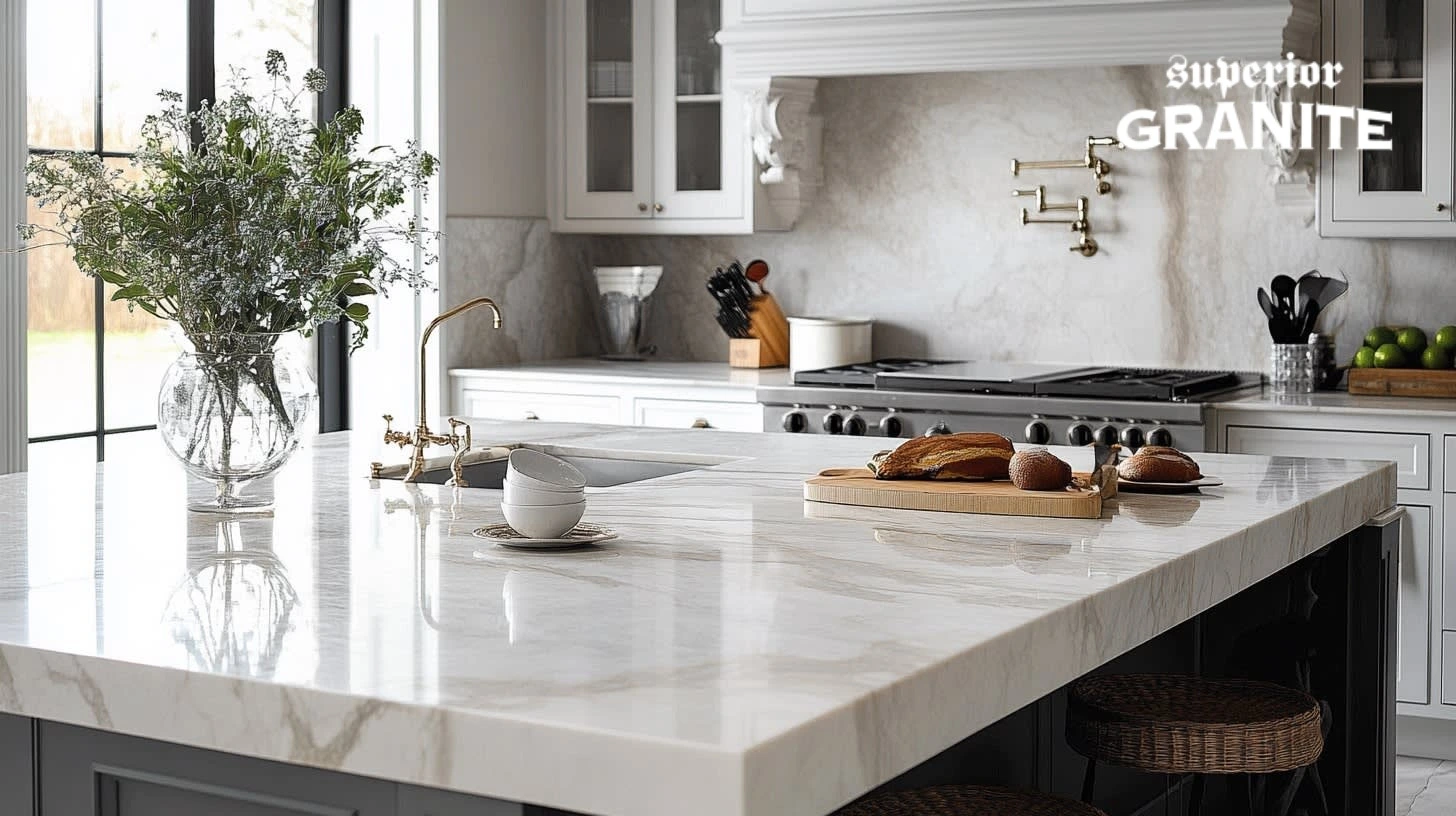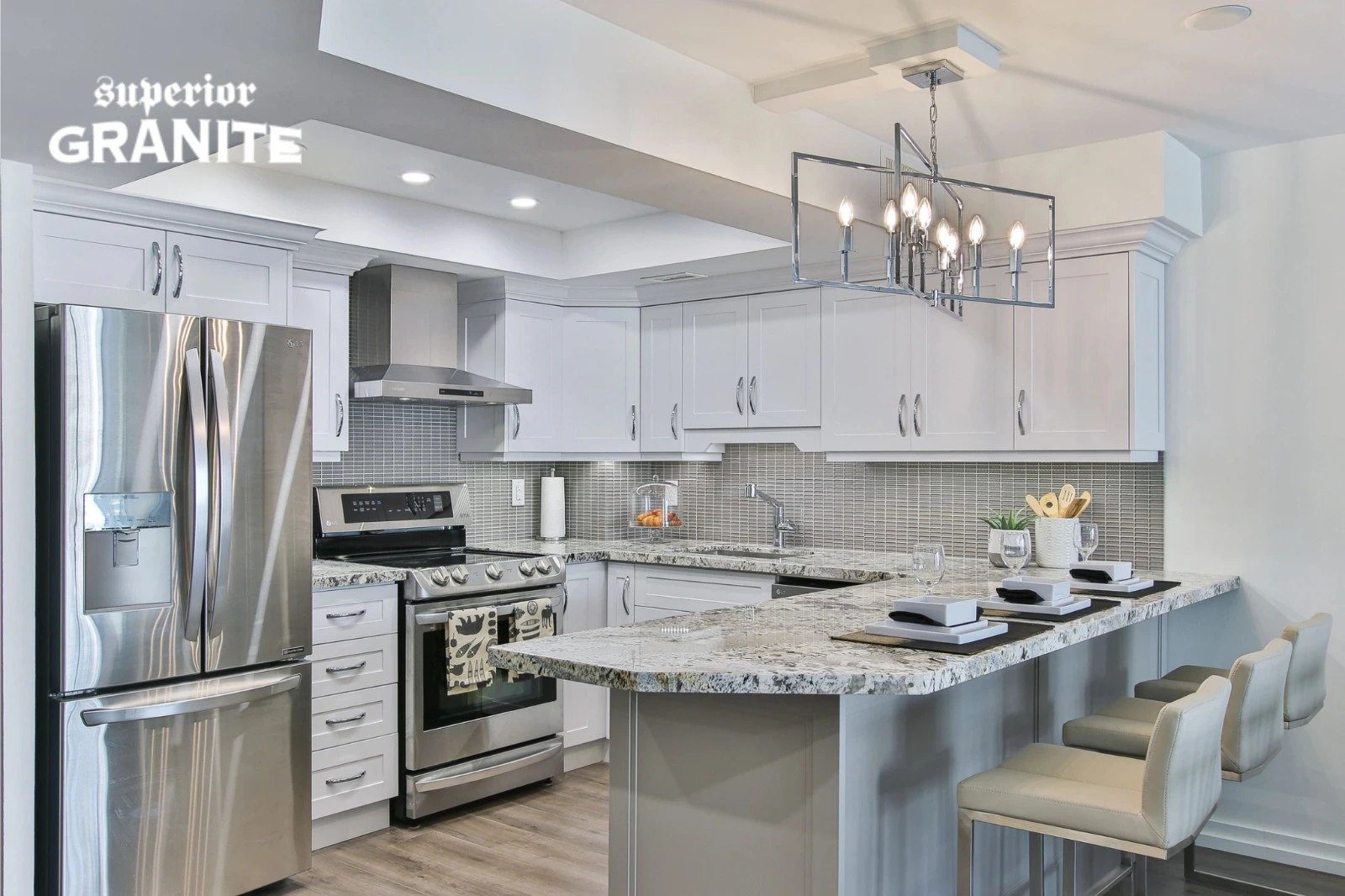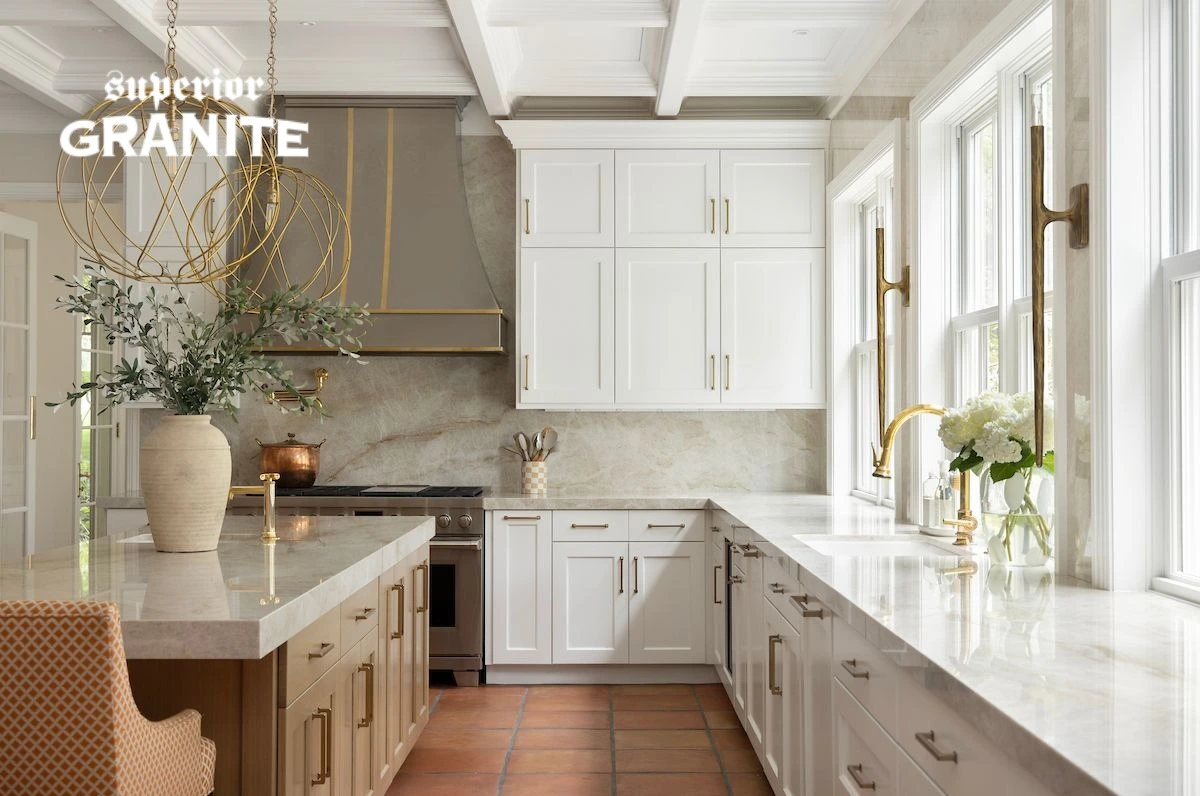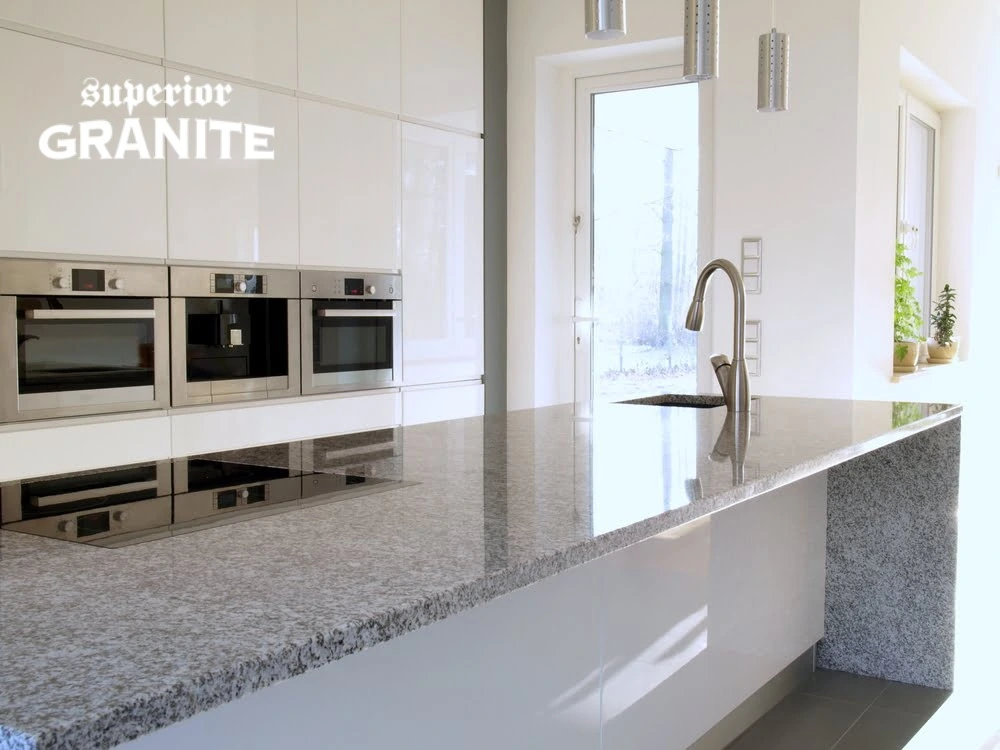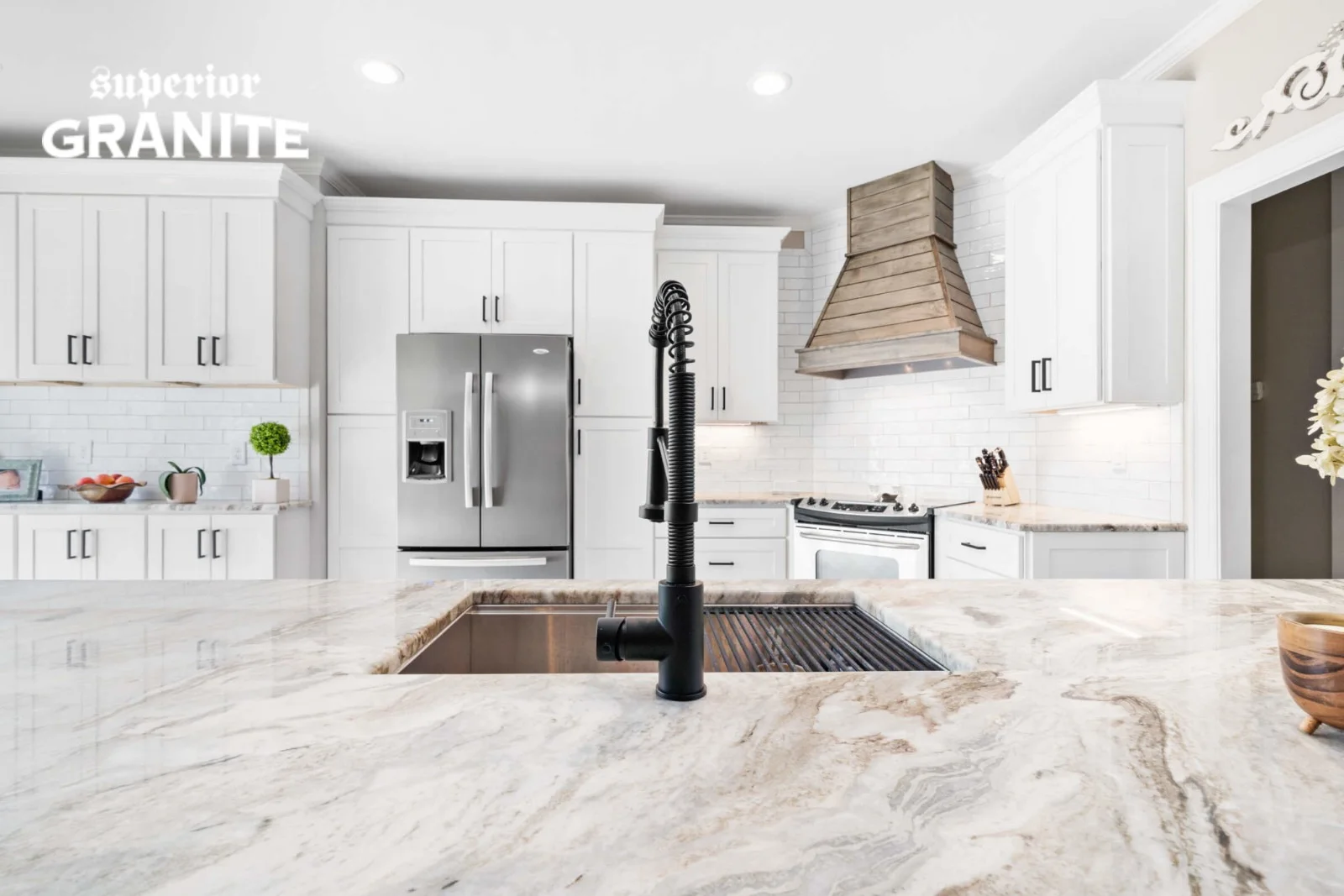Introduction
Imagine this: you’ve just pulled a sizzling cast iron skillet from the oven. Dinner smells divine. But wait—can you set that hot pan directly on your beautiful quartzite countertops? It’s a question homeowners often stress over, and honestly, for good reason. After all, who wants to risk damaging that gorgeous surface?
Let’s dive in and uncover the truth about Hot Pans on Quartzite countertops, their relationship with heat, and whether they can really handle the hot stuff.
What is Quartzite?
Quartzite is a metamorphic rock formed when sandstone undergoes intense heat and pressure beneath the Earth’s surface. This process fuses the sand grains with natural quartz crystals, creating an incredibly hard and dense stone. Quartzite’s mineral composition makes it both beautiful and functional—it typically appears in shades of white, gray, and cream, with dramatic veining that mimics marble.
Key Characteristics:
- Hardness: Quartzite scores a 7 on the Mohs scale, which means it’s significantly harder than many natural stones, including marble and even some types of granite.
- Scratch Resistance: Its hardness makes it highly resistant to scratching from knives, utensils, and other kitchen tools.
- Unique Appearance: No two slabs of quartzite are the same. It offers a natural, organic look that adds elegance and character to any kitchen.
- Porosity: While less porous than marble, quartzite can still absorb liquids if left unsealed or poorly maintained.
Quartzite vs. Quartz: Understanding the Difference
It’s important not to confuse quartzite with quartz countertops. Although their names sound similar, they’re fundamentally different:
- Quartzite is a natural stone, mined and cut into slabs. It’s 100% natural, requiring sealing to protect against stains.
- Quartz is an engineered stone made from crushed quartz crystals mixed with resin. The resin content makes quartz less heat-resistant than quartzite.
This distinction is essential because while quartzite can generally handle hot cookware better than quartz, the same rules do not apply to both.
Read this in detail: What is Better for Kitchen Countertops, Quartz or Quartzite?
Heat Resistance of Quartzite
Quartzite’s formation under extreme heat and pressure makes it naturally resistant to high temperatures. This gives it a distinct advantage over many countertop materials, including engineered quartz, laminate, and solid surface materials.
Can You Place Hot Pans Directly on Quartzite?
Technically, yes. Quartzite can tolerate temperatures of up to 1000°F (538°C) without melting or deforming. Placing a hot pan that’s just come off a stove or out of an oven (typically ranging from 300–500°F) is unlikely to cause immediate damage to the stone itself.
However, just because you can do something doesn’t always mean you should. While the stone may not be harmed, other elements of the countertop, such as the sealant or any adhesives used during installation, may degrade over time due to repeated heat exposure.
Potential Risks:
- Thermal Shock: Sudden temperature changes can cause natural materials to expand or contract rapidly. While rare, this can lead to cracks or stress fractures.
- Sealant Degradation: Most quartzite countertops are sealed with a protective coating. Constant exposure to high heat can break down the sealant, leading to discoloration or increased susceptibility to staining.
- Adhesive Weakening: If the countertop is not properly installed, repeated heating in localized areas could weaken adhesives or supports.
Comparisons with Other Countertop Materials
Let’s see how quartzite stacks up against other common kitchen countertop materials when it comes to heat resistance:
Quartzite vs. Granite
- Heat Resistance: Both materials are heat-resistant, but quartzite edges out granite slightly in terms of raw temperature tolerance.
- Scratch Resistance: Quartzite is harder than most granite varieties.
- Maintenance: Both require periodic sealing, but granite tends to be more forgiving if left unsealed for short periods.
Read this in detail: What is the difference between quartz, quartzite, and granite?
Quartzite vs. Marble
- Heat Resistance: Quartzite is far more heat-resistant than marble, which is softer and more prone to etching.
- Durability: Marble scratches and stains easily, while quartzite is better suited for high-use kitchens.
- Appearance: Both are visually stunning, but quartzite provides a more durable alternative to those who love the look of marble.
Read this in detail: What is the Difference Between Quartz and Marble?
Quartzite vs. Quartz
- Heat Resistance: Quartzite wins hands down. The resins in quartz countertops can scorch, discolor, or even melt under direct heat.
- Durability: While both are durable, quartzite is better for heat-intensive cooking environments.
- Maintenance: Quartz requires less sealing but is more vulnerable to heat.
Best Practices for Heat Protection
While quartzite is durable, taking a few extra precautions can help maintain its beauty and function for decades.
1. Use Trivets or Hot Pads
Always place hot pots, pans, or baking sheets on a trivet or hot pad. This is the easiest way to prevent thermal shock and avoid long-term wear on the sealant.
2. Allow for Gradual Cooling
Let hot cookware cool for a few minutes on the stove before placing it on the counter. This reduces the temperature differential and lowers the risk of stress damage.
3. Maintain the Sealant
Reseal your quartzite countertop every 1–2 years (or as the manufacturer recommends). A strong sealant protects against stains and minor surface damage.
4. Clean Spills Promptly
While heat is a concern, don’t forget about liquids. Clean up spills quickly to avoid potential staining, especially from acidic substances like wine, vinegar, or lemon juice.
Pros and Cons of Quartzite in High-Heat Zones
Pros:
- Exceptional Heat Resistance: Easily withstands temperatures from everyday cooking.
- Stunning Aesthetic: Looks like marble but performs more like granite.
- Scratch and Etch Resistant: One of the hardest countertop materials available.
Cons:
- Thermal Shock Risk: Sudden exposure to extreme temperatures could cause stress cracks.
- Sealant Vulnerability: Repeated heat exposure can degrade surface protection.
- Cost: Quartzite is more expensive than many alternative materials.
Maintenance Tips for Longevity
To keep your quartzite countertop looking pristine and functioning properly, follow these care guidelines:
Daily Cleaning
Use a soft cloth or sponge with warm water and mild dish soap. Avoid harsh or abrasive cleaners.
Resealing
Apply a stone sealant every 12 to 24 months, or as needed based on your kitchen usage.
Avoid Harsh Chemicals
Steer clear of bleach, ammonia, or acidic cleaners that can damage the stone or degrade the sealant.
Use Coasters and Cutting Boards
Protect the surface from unnecessary wear by using coasters for drinks and cutting boards for food prep.
Final Thoughts
Yes, you can place hot pans on quartzite countertops thanks to their natural heat resistance. However, it’s better to use a trivet or hot pad to protect your investment. The stone itself may survive high heat, but consistent exposure can wear down sealants or even cause minor cracking due to thermal shock. By following a few simple precautions, you can enjoy the durability and elegance of quartzite countertops for many years to come.
Have questions or your own hot-pan story? Drop it in the comments below!
Want help choosing the perfect quartzite slab for your kitchen? Contact Superior Granite for expert advice and top-quality natural stone options.
FAQs
1. Is quartzite more heat-resistant than granite?
Yes, quartzite is generally more heat-resistant than granite due to its denser composition and natural formation process.
2. Can hot pans cause quartzite to crack?
While rare, sudden temperature changes can cause stress fractures, especially if the countertop is already compromised or improperly supported.
3. How often should I reseal my quartzite countertop?
It’s recommended to reseal every 12 to 24 months, depending on use. High-traffic kitchens may need more frequent resealing.
4. Will heat discolor quartzite?
The stone itself is unlikely to discolor from heat, but the sealant may degrade or yellow over time if exposed to high temperatures regularly.
5. Can I use quartzite in outdoor kitchens?
Yes, quartzite is an excellent choice for outdoor kitchens because of its resistance to heat and weather elements. Just ensure it’s properly sealed and maintained.

